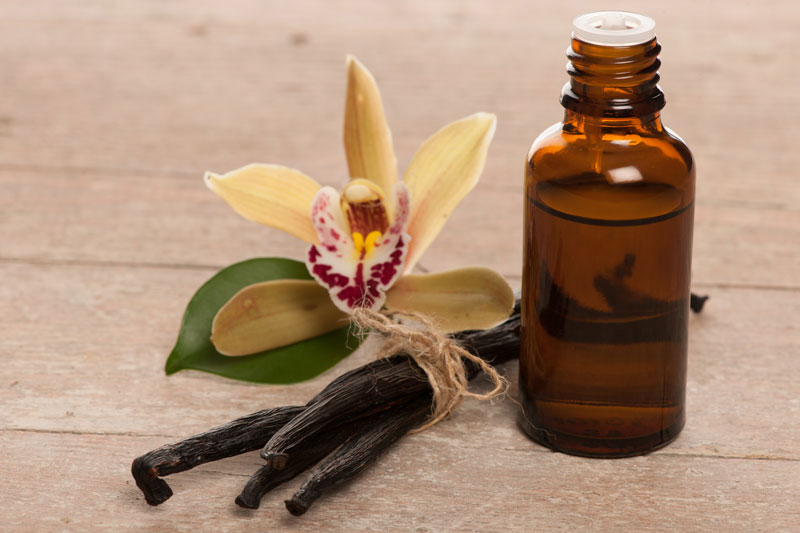
It might be the oldest trick in the book of the perfume industry, sex sells but nowadays we might be able to add, so does organic. The idea is compelling: a fragrance that contains all-natural ingredients sounds exclusive, good for our health and environment friendly. However, in the case of perfumes, it’s the synthetic fragrance that proves to be a greener choice.
A natural beauty?
“We’ve been seeing growth in fragrance brands that have a natural focus for years,” says Kissura Craft, fragrance analyst at The NPD Group. “Consumers gravitate toward brands that have a concentration on natural ingredients as there is the thought that they are healthier and better. So they shy away from anything they think is synthetic.” Which isn’t just the case when it comes to perfume; the trend towards using natural ingredients and materials is also evident in the food-, clothing- and beauty industry. However, when it comes to fragrance, all-natural can be more harmful than it might appear. The reason being that several natural ingredients used in perfume come from scarce plants and flowers, like vanilla, sandalwood, ylang ylang, vetiver and more.
Take vanilla – one of today’s most favoured notes – derived from orchids of the genus Vanilla and mainly produced in Madagascar, has now become one of the most expensive spices in the world today. Why? First of all, because of its labour intensity. Vanilla beans are part of the orchid family and have to be hand-pollinated on the farms. Once they are picked, the beans have to dry in the sun for about three to six months before they can be used. Also, it takes about 500 kg of vanilla pods to produce only one 1 kg of vanillin extract. But over the last couple of years another challenge has risen: deforestation. While vanilla beans traditionally grow under the shade of trees in rainforests, farmers in Madagascar now clear these forests to create even bigger plantations to grow vanilla in a more ‘modern’ way. Which doesn’t only have a major impact on our environment, it also reduces the quality of the vanilla.
However, perfumers are still using these scarce natural ingredients (like vanilla) to create their organic fragrance. After all, consumers still think they are healthy and environment friendly so why use the synthetic opponent? Well, let’s start by saying that they are cheaper, stronger, last longer and they offer a bigger variety, allowing the perfumer to be much more creative. However, it’s not what the consumer desires, at least not for now. And so the major struggle that fragrance companies now have to face is how to sustainably produce a product that is rather unsustainable.
Keeping it real
“We support and encourage our members to play an active role in sustainability,” director of the UK International Fragrance Association (IFRA) Lisa Hipgrave says. “I believe that by sharing as much as possible and providing a forum for discussion on sustainability, the industry can continue to develop sustainable programmes and work in a sustainable manner. Many companies in the UK are now progressively integrating sustainability aspects into the ways the supply chains are managed and the clients now expect the entire industry to behave sustainable. This builds trust in the relationship between the consumer and their brands,” explains Hipgrave.
Borregaard, member of IFRA, is such a company that progressively integrates sustainability in producing natural ingredients for the fragrance industry. With their bio refinery concept they turn wood into bio chemicals, bio materials and specialty products based on natural raw materials such as vanillin. It still takes about 1000 kilos of wood to produce three kilos of vanillin extract but the company states that their vanillin has a 90% smaller CO2-foorprint compared to mineral oil-based vanillin. “We utilise more than 90 per cent of our biomass compared to the three per cent used for vanillin produced from beans. We are using a resource that can be regrown,” explains Borregaard Vanillin’s business director Thomas Marwedel in one of IFRA’s case studies.
True colours
Which means that the fragrance industry is making some major steps in ensuring the sustainability of raw materials, but there is still a lot more that can be done. “The concept of the circular economy – a metaphor for enhanced resource productivity, often translated as doing “more with less” and managing waste and residue materials more efficiently – is not applied consciously, but is practiced instinctively in some cases,” explains Lisa Hipgrave. “I think improvements could be made with regard to waste, especially in packaging. To be implemented properly, circular economy practices will require a lot of knowledge.” And sometimes a little nudge from us consumers.














To say that natural fragrances are less green is an outrage, I agree that sustainability is an issue, but that issue applies to everything on the planet and as far as I can see, a lot is being done to ensure that natural aromatics are sustainable and the plants you speak of are not endangered aside from sandalwood from India but as someone else already has commented, there are now huge sandalwood farms in Australia. Vanilla is also grown outside of Madagascar in huge quantities and deforestation due to vanilla farming is a drop in the ocean compared to deforestation to keep up with demands for meat.
I agree that sustainability is an issue for all industries to some degree but there is nothing 'greener' than natural products, what kind of a world would we live in if everything we consumed was synthetic? never to taste or smell real vanilla again, imagine that! They are now even making meat that is animal free too! We could end up living in a world that values synthetics over natural ingredients which has already happened to some degree in the fragrance industry, though this is more to do with marketing and brand names.
Being green is keeping it natural and tackling the issues humanity faces in the wake of super consumerism, being green is not trading synthetics for naturals at all.
What a lovely introduction to a conversation! Thank you!
I think it is obvious now there are certainly some factual issues here, and certainly there are enough half truths out there to make things very very confusing indeed.
In my experience, there is going to be quite a duality when it comes to natural vs. synthetic... and even to some extent what natural is within the Naturals community. So perhaps it is helpful to agree on a vernacular or vocabulary which is expressing the same meaning and intent. Something perfumers must do when working together, for the term "scarce" is an example which seems to be clogging the flow of communication here.
While it is true some botanicals have been truly overharvested and even pushed to extinction- this has never been at the hands of the perfume industry, even Bois de Rose and Indian Sandalwood have come to this state more from furniture and clear cutting rainforest than a distiller who reveres the trees.
The conglomerate synthetic perfume industry, led now as almost all companies, by a monopoly of routinely disinterested three or four players, does not have the well being of the environment or anyone's health in mind. Point out all the prettyverbage you'd like- this remains a fact. Actions will determine truth, not saying the future contains an answer.
The biowaste from thesewood substances: where is the ecological report card?
To say the consumer does not want something YET is a promise you will manipulate them into either choosing this by removing all other competition or because you simply have not found the lie which works. In short, you have no intention of listening to the consumer.
Consider the pharmaceutical industry... another industry which is directly based on natural substances, synthesized and then used to create a profit far beyond its actual worth. This is another industry whose has aimed at negating, controlling and would if possible forbid the use of botanical remedies so it's greed for money and pseudosuperiority will reign... and yet... it would not exist without the natural plants it mimics.
IFRA is not interested in creativity nor diversity nor a fair playing ground, It does not exist to serve your health. Please understand, while you believe it serves a purpose, you ignore the ways it destroys small business, eradicates the creative genius of perfumers past, and creates a monopoly on raw materials for no other reason than corporate greed.
The scarcity you are speaking of is not raw materials, what we lack here is honesty, integrity, and an education beyond what corporations are offering.
Am I biased? Of course. I am not against the evolution of science.. I am against the use of science to lead people astray. Statistics are inherently both true and untrue. So, in telling one side of the story, we have here a collection of half truths sprinkled with some buzzwords all giving to a very sympathetic pat on the head for natural perfumers. Now, shall we present the vast education, experiential knowledge and extensive network of sustainable agriculture, business, energy and community which the Natural Perfume Community actually represent?
I ask because there is a vital conversation here which seems to come up again and again... it is not, in my perspective, the idea someone chooses a synthetic molecule over a natural one, but the aggressive character assault on natural perfumers and now the political campaign against botanical materials which should point out there is an agenda beyond aesthetics... beyond common sense.
Let us have this conversation, and not debate aesthetics. This is not about smelling pretty, this is about the Earth, our resources and our bodies. This is about corporate control- body & mind, planet and resources.
What is scarce? Livable planets.